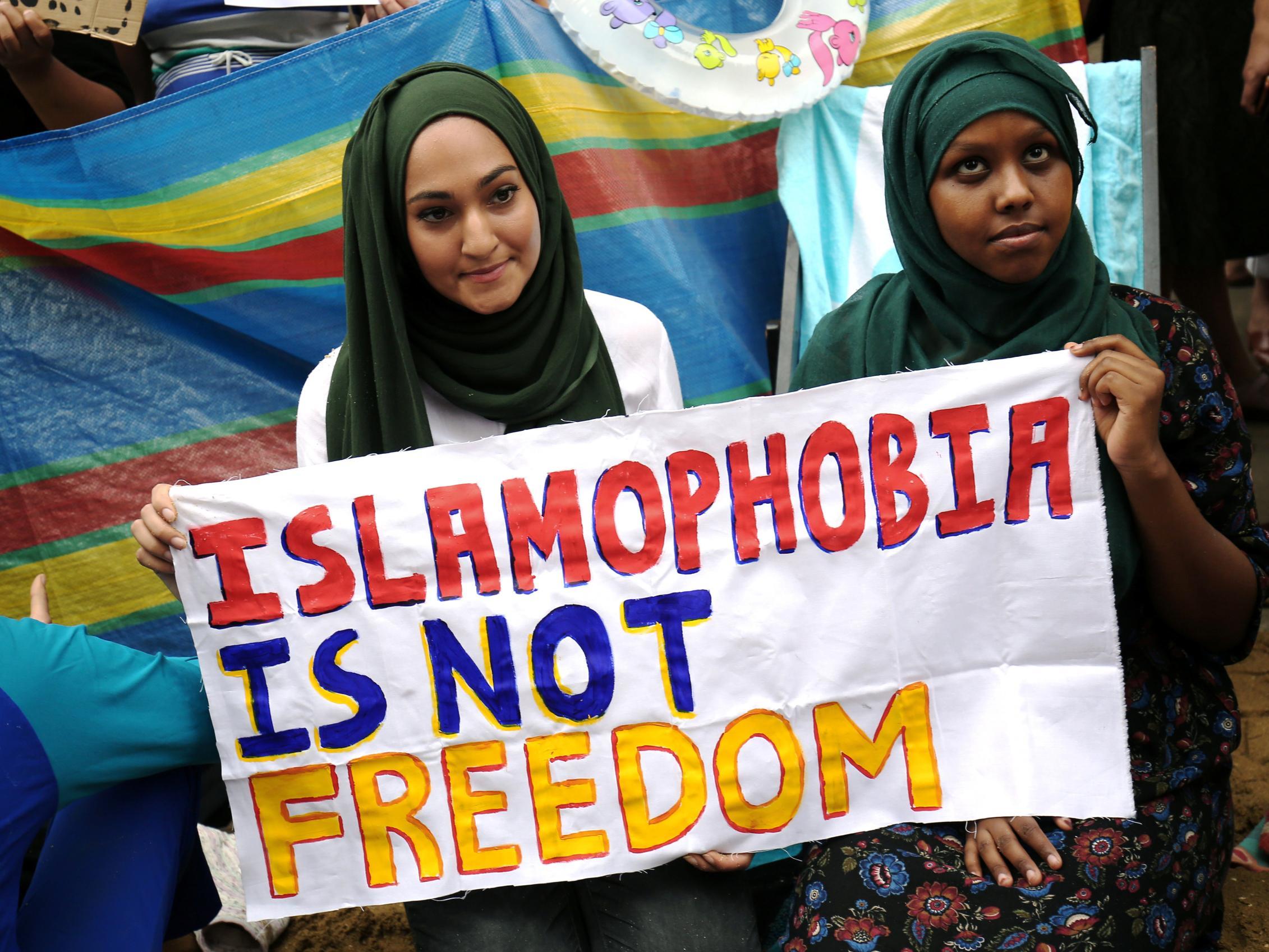French secularism is giving far-right MPs licence to target Muslim women yet again
Nuns, for example, wear similar clothing and cover their hair; they are respected, and rightly so. Why the double standards for a Muslim woman?


Another year, another row over secularism and the hijab in France. This time, the debate erupted after a far-right politician asked a woman who was accompanying her son and other children on a school trip to a regional council headquarters to remove her headscarf when entering the building. It is a reminder that, for all our progress, Islamophobia is still rife – in France, and right across Europe.
As a Muslim woman who wears a headscarf, it is really frustrating and obviously upsetting to face discrimination just for following the tenets of my faith. I know too well the pain of experiencing Islamophobia first hand in the UK. I have been verbally abused and harassed by members of the public just because my faith is visible to them.
The Muslim mother targeted in this instance was also left in tears, in front of her child, after being publicly humiliated by Julien Odoul, a member of Marine Le Pen’s National Rally (RN) party, who said he was acting on behalf of “secular principles in the wake of killings by a radicalised extremist”.
This excuse is unacceptable. There is nothing in French law that stipulates that women are not allowed to wear the hijab in or outside school gates while accompanying classes on outings. What happened was this: a woman that wanted to take part in her son’s school trip was deliberately victimised in an attempt to keep visible Muslims out of sight and deter Islamic integration into French society.
Remarkably, many ministers of Emmanuel Macron’s centrist government backed the stance of the politician, claiming defence of French secularism. Luckily, others within the same government quite rightly disagreed, citing that this position goes against the religious tolerance that “laïcité” is supposed to defend. But the political defence of religious tolerance in France is laughable given that formal restrictions have already been placed on wearing religious symbols.
France has had a long history of political controversies surrounding the hijab, resulting in a legal ban on wearing a hijab in classrooms and government offices in 2004. More worryingly, a recent opinion poll found that two in three French people are in favour of prohibiting parents accompanying children on school trips from wearing visible religious symbols – but this attitude restricts individuals from expressing their true identity.
France has the largest number of Muslim residents in Europe (approximately 10 per cent of the population), and yet this large minority now feel they are being asked to hide themselves away. It is so frustrating for visibly Muslim women to have to keep justifying their right to wear what they want in accordance to their faith; to be judged and made to feel that we are in support of acts of terror when we denounce it and are completely against it. Many Muslim women in France have told me that they are often subjected to Islamophobic abuse on their daily commute and some have not taken jobs in teaching because the rules surrounding the profession would require them to compromise their religious beliefs. I myself have been asked to take off my hijab when I was on holiday in France.
France became a secular state when it officially separated itself from the church in 1905 to abide by a set of national principles. The country purports to be neutral in matters of religion, therefore not conferring privilege on any particular religion or set of beliefs. However, what the modern French government has failed to realise is that their idea of secularism is restricting human rights, and is now being abused as a shield for discrimination and Islamophobic abuse.
Even the country’s education minister, Jean-Michel Blanquer, was not clear on what it means to be a secular state and having the right to religious freedom stating that “the law does not prohibit women wearing headscarves to accompany children”, but also stating “the headscarf itself is not desirable in our society”.
It seems that things have not changed for Muslim women in France since the days of the burqini ban back in 2016, when France started arresting women for wearing full-body swimwear. Even then, the debate was based around France’s constitutional secularism and freedom of religion; unfortunately, the same Trojan horse is being used years later.
It is not up to the French government to restrict women from wearing what they want and from following their faith. Nuns, for example, wear similar clothing and cover their hair; they are respected, and rightly so. Why the double standards when a Muslim woman, for many of the same reasons, chooses to cover her hair due to their own devotion to God? The root of the issue here clearly lies with unresolved Islamophobia.


Join our commenting forum
Join thought-provoking conversations, follow other Independent readers and see their replies